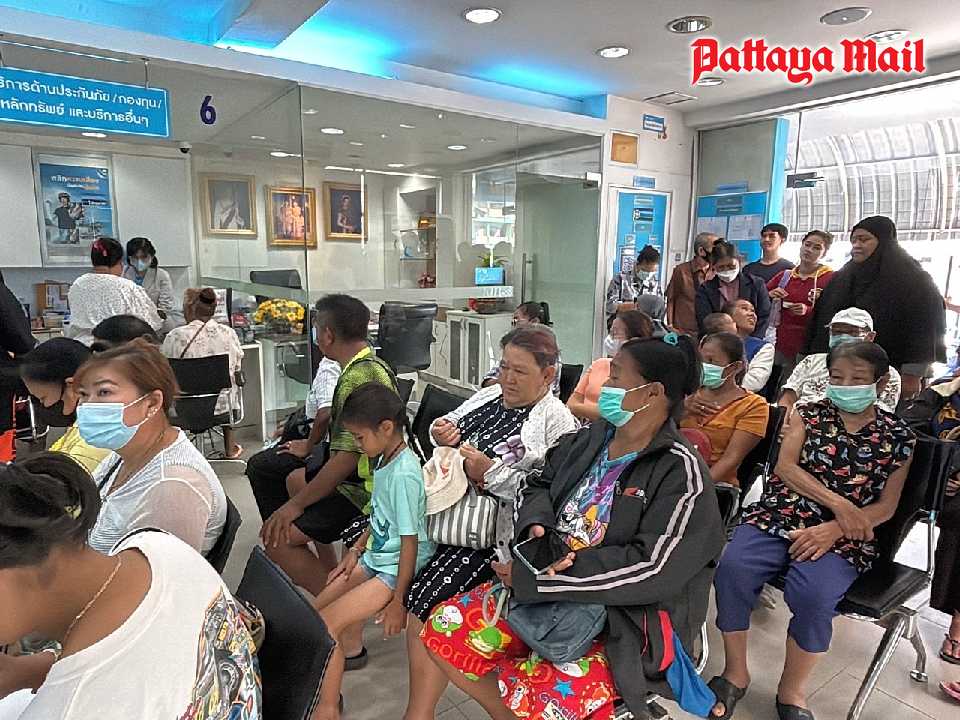
PATTAYA, Thailand – On September 20, large crowds gathered at banks across Thailand, particularly among vulnerable groups, to register for PromptPay ahead of the government’s 10,000-baht digital wallet handout. This initiative is part of a broader economic stimulus program aimed at boosting the national economy.
Originally set for disbursement on September 22, the payment process has been indefinitely postponed. Registration for the digital wallet will be conducted through the “Tang Rath” application, with users notified when the system becomes available.
Eligible recipients for the first round of payments, scheduled between September 25-30, include 12.4 million state welfare cardholders and 2.1 million individuals receiving disability allowances. These groups are not required to register but must link their PromptPay accounts to their national ID numbers to receive funds directly into their bank accounts.
On-site reports from Krungthai Bank’s Nern Plub Wan branch in East Pattaya indicated a high turnout. One bank staff member noted, “We’re here to assist everyone with the registration process and ensure identity verification goes smoothly.”
One market vendor commented, “While the registration was manageable, it took a considerable amount of time to finalize. I plan to use the 10,000 baht for basic living expenses, including food and utilities.” Another individual expressed frustration, saying, “I don’t understand why the government can’t directly deposit the funds into our accounts to reduce confusion and delays.”
The first phase of payments aims to cover 14.5 million people, including 2.1 million individuals with disabilities. The government plans to begin transferring the 10,000 baht to eligible recipients’ PromptPay accounts on September 25, processing 4-5 million transfers daily during the initial rollout. Many citizens indicated they would use the funds primarily for household necessities to alleviate the burden of rising living costs.









